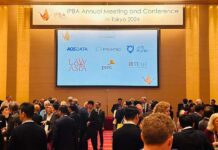The Authority for Advance Rulings (AAR) in the case of Cable & Wireless Networks India held that fees paid by an Indian company to its UK-based group company for providing telecommunication services would be categorized as business profits rather than as royalty payments or fees for technical services.
Cable & Wireless India was engaged in providing international long distance telecommunication services to Indian customers. For this purpose, it intended to enter into a service and revenue share agreement with its group company Cable & Wireless UK (C&W UK) to provide international services through the use of C&W UK infrastructure.
The main issue for consideration before the AAR was whether the fees paid to C&W UK would be considered as fees for technical services or royalty under the India-UK double tax avoidance agreement (DTAA) or section 9 of the Income Tax Act, 1961 (ITA).
You must be a
subscribersubscribersubscribersubscriber
to read this content, please
subscribesubscribesubscribesubscribe
today.
For group subscribers, please click here to access.
Interested in group subscription? Please contact us.
你需要登录去解锁本文内容。欢迎注册账号。如果想阅读月刊所有文章,欢迎成为我们的订阅会员成为我们的订阅会员。
Cable & Wireless India contended that the services rendered by C&W UK were standard services and not technical in nature, nor was any technical knowledge, skill or experience made available to its Indian arm. Hence, payments to C&W UK should not be categorized as fees for technical services under section 9(1)(vii) of the ITA as well as under article 13(4) of the India-UK DTAA.
The AAR agreed with Cable & Wireless India, observing that C&W UK did not provide any managerial, technical or consultancy services nor transfer any technology to its Indian counterpart.
Cable & Wireless India also contended that the payments made to C&W UK were not for the use of any intellectual property or equipment, and hence should not be categorized as royalty under section 9(1)(vi) of the ITA or article 13(3) of the India-UK DTAA. Cable & Wireless India relied on the Report of the Technical Advisory Group constituted by the Organization for Economic Cooperation and Development, which draws a distinction between transactions for the use of equipment and those for the rendering of services.
The AAR stated that the telecom services rendered by Cable & Wireless India are standard services and that the arrangement between itself and C&W UK would be merely for the rendition of services.
It also held that the use of secret process was never contemplated by the parties, and that a number of other telecom operators were providing similar services. The royalty provisions in the India-UK DTAA would only apply if the process qualified as a secret process.
The AAR also followed its ruling in Dell International Services India, maintaining that as no part of the fees paid would be for the use or right to use any equipment utilized for rendering services, the test of royalty would fail on that count. The AAR therefore ruled that there was no element of royalty in the fees paid by Cable & Wireless UK to C&W UK.
The tax authorities noted that Cable & Wireless India could qualify as an agency permanent establishment of C&W UK in India.
However, the AAR observed that Cable & Wireless India in its independent capacity negotiates and concludes contracts with its customers on a principal-to-principal basis, and does not act on behalf of C&W UK. Thus Cable & Wireless India does not constitute an agency permanent establishment of C&W UK in India, and accordingly the fees paid to C&W UK should be categorized as business profits, which are not taxable in India in the absence of a permanent establishment.
The AAR ruling is in line with earlier judgments and restricts the scope of fees for technical service or royalties. The decision is also interesting in that the AAR has followed the judgment of the Income Tax Appellate Tribunal in Panamsat International Systems in stating that only the right to use a secret process would be covered under the scope of royalty payments, not payments for the right to use any process.
You must be a
subscribersubscribersubscribersubscriber
to read this content, please
subscribesubscribesubscribesubscribe
today.
For group subscribers, please click here to access.
Interested in group subscription? Please contact us.
你需要登录去解锁本文内容。欢迎注册账号。如果想阅读月刊所有文章,欢迎成为我们的订阅会员成为我们的订阅会员。
The legislative and regulatory update is compiled by Nishith Desai Associates, a Mumbai-based law firm. The authors can be contacted at nishith@nishithdesai.com. Readers should not act on the basis of this information without seeking professional legal advice.


























